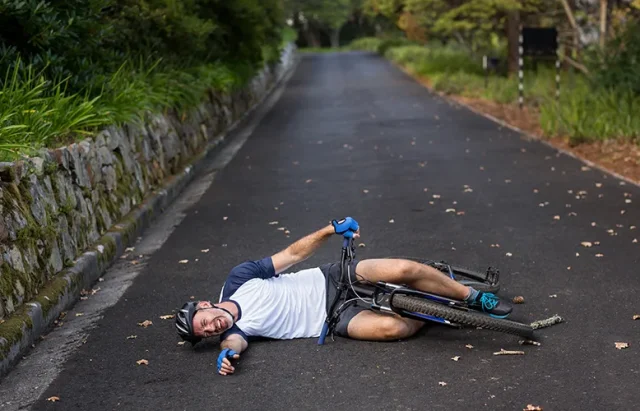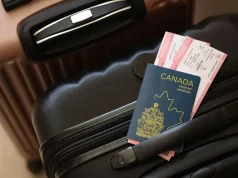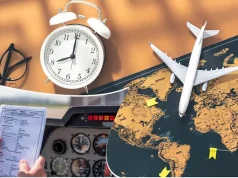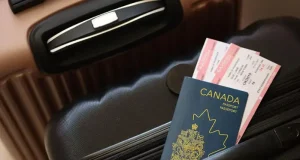
A day at the park is supposed to be simple—sunshine, fresh air, kids burning off energy while parents get a moment to breathe. But when fun turns into an unexpected injury, things can get stressful fast. A broken swing, a slippery surface, or a missing warning sign can quickly flip the script from carefree to critical.
If someone gets hurt in a public space like a park or playground, figuring out what to do next isn’t always clear. That’s where understanding public liability comes in—and why speaking with a personal injury law firm can be so important. They can help you figure out whether someone failed in their duty to keep that space safe, and what your options are if they did. It’s not just about legal claims—it’s about knowing your rights and making sure others don’t end up in the same situation. Because when safety fails in a shared space, accountability matters.
So, What Is Public Liability, Anyway?
Think of public liability as the legal version of “you break it, you buy it”—except it’s more like “you neglected it, you’re paying for it.” Local councils, government bodies, and even private maintenance contractors all have a duty to keep public spaces reasonably safe. When they don’t, and someone gets hurt, public liability laws determine who has to answer for it.
Each Aussie state has its own version of the Civil Liability Act, but they all revolve around the same idea: if an injury could’ve been prevented by reasonable action, then someone might be legally responsible. But (and here’s the tricky part), it’s not always black and white.
What Makes a Park or Playground Dangerous?
It’s not just the obvious stuff, like a rusty swing that looks like it belongs in a horror film. Hazards can pop up in all sorts of ways:
- Poor maintenance: Loose bolts, broken seesaws, or slide surfaces that feel like sandpaper.
- Design flaws: Equipment crammed too close together, or monkey bars that practically invite disaster.
- Faulty manufacturing: If it breaks the first time a kid uses it, something’s gone wrong at the factory.
- Bad weather: Wet surfaces and muddy areas can turn fun zones into slip-and-slide danger zones.
- Lack of signage: Sometimes the warning signs just… don’t exist.
Even the most innocent-looking park can be a minefield if the basics aren’t handled properly. And yes, it’s okay to feel a little extra paranoid next time you’re at the playground—especially when you realise how common these injuries really are.
Who’s Actually Liable?
Let’s say your child breaks an arm on a slide that hasn’t been checked in months. Who do you call?
Usually, it starts with the local council. They’re responsible for inspecting and maintaining public parks. But if they’ve outsourced that job and the third-party crew didn’t do their part, liability could shift. Same goes for the equipment manufacturers—if the gear itself was faulty, they might share the blame.
But hold on—there’s a catch. Liability isn’t automatic. Courts will ask:
- Could the danger have been foreseen?
- Did the responsible party take reasonable steps to prevent it?
- Was the injured person partly at fault (what’s called contributory negligence)?
So, yes, if your teenager was parkour-ing across a fence meant for toddlers, that could reduce how much compensation you’re eligible for. It’s all about context.
What to Do If Someone Gets Hurt
Alright, let’s say something goes wrong. What should you do?
- First things first—get medical help. Whether it’s a scraped knee or a broken wrist, safety comes before anything else.
- Report the incident to the local council or whoever manages the park. Make sure you get a reference or report number.
- Take photos. Document the scene, especially anything that looks dodgy—loose bolts, broken steps, poor lighting, etc.
- Get witness info. Anyone who saw what happened can help back up your claim.
- Keep your receipts. Medical bills, travel costs, anything related to the injury—save it all.
- Talk to a lawyer if the injury is serious or costly. There’s a time limit on claims (usually a few years), so don’t sit on it too long.
Why Legal Advice Can Make All the Difference
Even if the injury seems minor at first, the long-term effects—physically, emotionally, and financially—can surprise you. That’s why getting early legal advice isn’t just smart, it’s proactive. A qualified professional can help you understand if you have a case, how strong it is, and what kind of compensation you might be entitled to. More importantly, they’ll handle the paperwork and deadlines so you can focus on recovery. Whether you’re dealing with medical bills, time off work, or ongoing care for a child, legal guidance takes the guesswork out of an already stressful situation. The sooner you reach out, the more options you may have—and that peace of mind can be just as valuable as any settlement.
Staying Safe (And Sane) at the Park
Now, let’s not all bubble-wrap our kids and swear off monkey bars forever. Accidents happen. But a little vigilance can go a long way:
- Do a quick scan of the equipment before your kids hop on.
- Look for damage like cracks, rust, or loose parts.
- Watch out for wet or muddy areas, especially near slides or swings.
- Report issues to the council. Yes, even if it feels like shouting into the void—it helps create a record.
- Advocate for your community. Safer parks happen when people speak up.
Local campaigns have made a real difference in some areas. In Waverly Council, for example, parents pushed for better surfacing after a series of minor injuries—and it worked. Sometimes all it takes is a few persistent voices to create real change.
The Big Picture: Let’s Keep Parks Fun and Safe
Nobody wants to turn every playground visit into a legal exercise. But being informed about your rights—and the responsibilities of those in charge—can make a world of difference. When councils, communities, and parents work together, our parks can be joyful, safe spaces for everyone.
So go ahead, plan that picnic, let the kids loose on the swings, and enjoy the sunshine. Just keep an eye out—and don’t be afraid to speak up if something doesn’t look right.
Because fun shouldn’t come with a side of liability.





